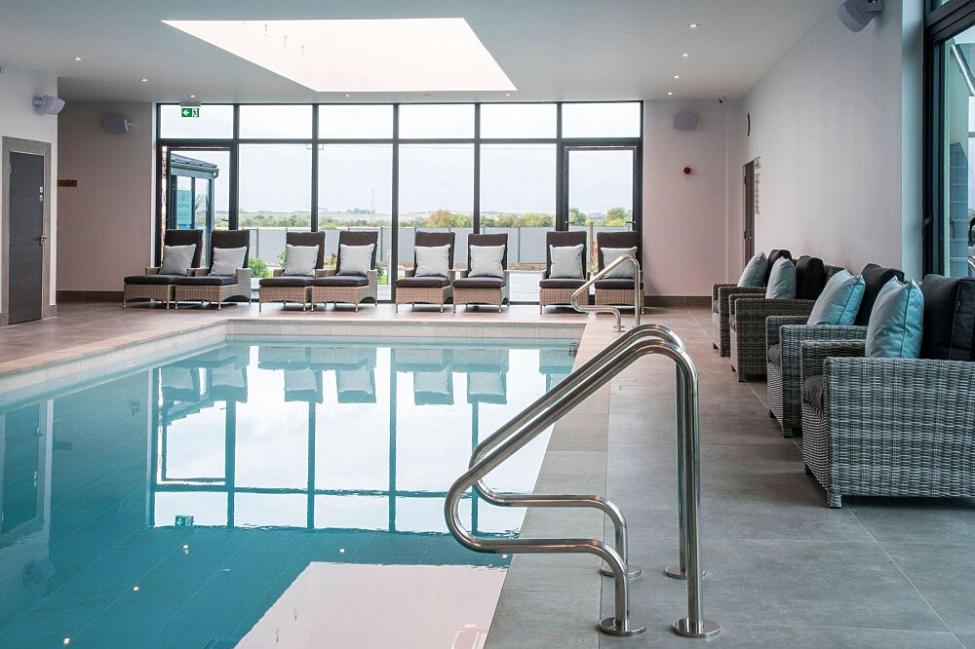Can Wellness Retreats Help Me Manage Stress and Improve My Overall Well-being?
In today's fast-paced world, stress has become a pervasive issue, affecting our mental, physical, and emotional well-being. As a result, wellness retreats have gained immense popularity as a means of self-care and rejuvenation, offering a holistic approach to stress management and overall well-being.

I. Types Of Wellness Retreats
Wellness retreats come in various forms, each catering to specific needs and preferences. Some common types include:
- Spa Retreats: Focus on relaxation, pampering, and physical rejuvenation through massages, body treatments, and spa facilities.
- Yoga Retreats: Emphasize yoga practices, meditation, and mindfulness techniques to promote inner peace and mental clarity.
- Holistic Retreats: Combine multiple modalities, including nutrition, fitness, and emotional well-being, for a comprehensive approach to wellness.
- Silent Retreats: Encourage introspection, self-reflection, and digital detox by eliminating all forms of communication and technology.
II. Benefits Of Wellness Retreats
Attending a wellness retreat can provide numerous benefits for both physical and mental well-being, including:
- Stress Reduction: Retreats provide a break from daily stressors, allowing for deep relaxation and rejuvenation, reducing stress levels and promoting a sense of calm.
- Improved Mental Well-being: Retreats can help alleviate anxiety, depression, and promote emotional balance by providing tools and techniques for managing emotions and improving mental resilience.
- Enhanced Physical Health: Many retreats offer activities that promote physical fitness, healthy eating, and overall well-being, leading to improved energy levels, better sleep, and a stronger immune system.
- Increased Self-awareness: Retreats provide an opportunity for self-reflection, leading to a deeper understanding of oneself, one's values, and life purpose.
- Stronger Social Connections: Retreats offer a chance to connect with like-minded individuals, fostering a sense of community and support, and building meaningful relationships.
III. Choosing The Right Wellness Retreat
Selecting the right wellness retreat is crucial to maximizing its benefits. Consider the following factors:
- Personal Goals and Needs: Identify specific areas of focus, such as stress reduction, weight loss, or spiritual growth, to choose a retreat that aligns with your objectives.
- Location and Accessibility: Consider the retreat's location, duration, and ease of travel to ensure it fits your schedule and budget.
- Modalities and Activities: Research the retreat's offerings, ensuring they align with personal preferences and goals, and that the retreat provides a variety of activities to keep you engaged.
- Reputation and Reviews: Read reviews and testimonials from previous participants to gauge the quality and effectiveness of the retreat.
IV. Preparing For A Wellness Retreat

To make the most of your wellness retreat experience, follow these tips:
- Set Realistic Expectations: Understand that retreats are not a cure-all and require active participation and commitment to achieve lasting benefits.
- Pack Essentials: Bring comfortable clothing, toiletries, and any personal items needed for the retreat's activities.
- Maintain an Open Mind: Be receptive to new experiences and challenges, allowing for personal growth and transformation.
V. Making The Most Of A Wellness Retreat
To fully benefit from a wellness retreat, consider the following suggestions:
- Fully Engage in Activities: Participate actively in workshops, classes, and sessions offered during the retreat to maximize the benefits.
- Practice Mindfulness and Self-care: Take time for self-reflection, meditation, and relaxation to fully immerse in the retreat experience and promote inner peace.
- Connect with Others: Engage with fellow participants, share experiences, and build meaningful connections to enhance the retreat experience and create a sense of community.
- Set Personal Goals: Define specific goals for the retreat and work towards achieving them throughout the experience to ensure lasting positive changes.
VI. Post-Retreat Integration

To sustain the benefits of a wellness retreat, consider the following steps:
- Create a Personalized Wellness Plan: Develop a routine that incorporates healthy habits and practices learned during the retreat to maintain a balanced and fulfilling lifestyle.
- Maintain Connections: Stay in touch with fellow participants and retreat facilitators for ongoing support and encouragement to continue the positive changes initiated during the retreat.
- Seek Professional Help if Needed: Consider working with a therapist or counselor to address deeper issues or challenges that may require additional support.
VII. Conclusion
Wellness retreats offer a transformative experience that can help manage stress, improve overall well-being, and promote a balanced and fulfilling lifestyle. By choosing the right retreat, preparing adequately, and actively engaging in the experience, individuals can reap the numerous benefits of wellness retreats and incorporate them into their daily lives for lasting positive change.
YesNo

Leave a Reply